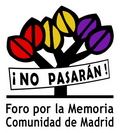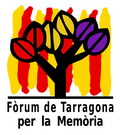Marina Ginestà – obituary
 Marina Ginestà was a mysterious beauty photographed during the Spanish Civil War who was identified exactly 70 years later
Marina Ginestà was a mysterious beauty photographed during the Spanish Civil War who was identified exactly 70 years later
08 Jan 2014Comments1 Comment
Marina Ginestà, who has died aged 94, was believed to have been the last surviving French veteran of the Spanish Civil War. As a 17-year-old member of Spain’s Unified Socialist Youth she was immortalised in a photograph taken on the roof of the Hotel Colón in Barcelona in the first flames of the conflict; it was to become one of the most famous photographs of the war.
Widely considered a masterpiece of reportage, the picture was taken on July 21 1936 by the photojournalist Juan Guzmán. In it, the striking Ginestà looks sideways directly into the lens with a wry smile, belying the dramatic events playing out in the city beneath her. A rifle is casually slung over her shoulder, the sleeves of her uniform rolled up in the summer sun, while the wind whips strands of hair over her fine cheekbones.
Marina Ginestà was born on January 29 1919 in Toulouse, France. Her family moved in the early 1930s to Barcelona, where she joined the Unified Socialist Party of Catalonia. In July 1936 she arrived at the Hotel Colón to carry out duties as translator and typist for Mikhail Koltsov, a correspondent for the Soviet newspaper Pravda. As a non-combatant this was the only time Ginestà carried a gun.
On being shown the picture late in life Marina Ginestà recognised the passion and pride she felt for the Republican cause. “It reflects the feeling we had at that moment. Socialism had arrived, the customers of the hotel had left. There was euphoria,” she said wistfully. “We temporarily set ourselves up at the Colón, we ate well, as if the bourgeois life were ours and we had moved up in category very quickly.”
Republican forces were in celebratory mood that day, relaxing in the wake of the failed coup d’etat against the Left-wing Popular Front government. The Colón itself had been the scene of bitter fighting, with Colonel Antonio Escobar Huertas leading his Civil Guard into the hotel and overcoming soldiers loyal to General Franco. Guzmán, a German-born photographer who later took Spanish citizenship, was in the city with the International Brigades, the anti-fascist military unit, and caught the joy of the masses.
The picture would later feature on the jacket of the book Trece Rosas Rojas (The Thirteen Roses, 2004) by Carlos Fonseca, a bestselling account of the execution of 13 young women by a Francoist firing squad during the post-war purges known as the “saca de agosto” – the August round-up.
Yet, even with the picture’s prominence, its subject remained unaware of its existence for most of her life. Nor, indeed, did the public know who the defiant girl on the roof was. It was only in 2006 that a researcher at Agencia Efe, who held Guzmán’s archive of wartime images, tracked her down in France. Guzmán had wrongly catalogued Ginestà under the name Jinesta. It was through the memoirs of Mikhail Koltsov, with whom she appears in another of the agency’s pictures, and investigations at the Spanish Civil War archives in Salamanca, that her identity finally came to light.
At the end of the war Marina Ginestà was wounded and, as Spain’s short-lived Second Republic collapsed, she was evacuated to Montpellier to recover. She later fled the city when the Germans invaded France, settling in the Dominican Republic. Further persecution, this time by the Dominican dictator Rafael Trujillo, caused her to leave in 1946, and in 1952 she returned to Barcelona. By the time she was discovered by Efe she was living in Paris as a translator for a Spanish psychoanalyst.
“They say that in the Colón photo I have a captivating look,” she acknowledged in an interview given in her late eighties. “It’s possible, because we were immersed both in the mysticism of the proletarian revolution and the images of Hollywood, of Greta Garbo and Gary Cooper.”
Marina Ginestà married twice, latterly in 1952 to a Belgian diplomat.
Marina Ginestà, born January 29 1919, died January 6 2014
http://www.telegraph.co.uk/news/obituaries/10559135/Marina-Ginesta-obituary.html





























